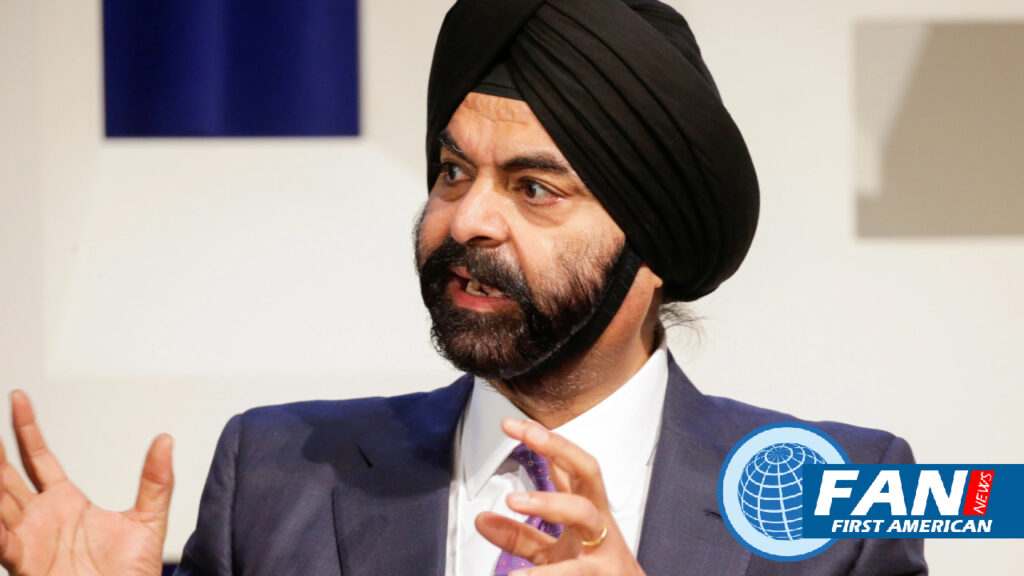Economy
WSJ News Says Climate Change & Poverty World Bank Challenge
The WSJ News has reported that the bank’s wealthy member countries are reluctant to add more to its coffers. But they are also demanding that it lend more money to programs that would fight climate change.
Figuring out how to tackle that assignment—and still work to alleviate poverty—will likely fall to Ajay Banga, an India-born American businessman with little background in multilateral development work or climate policy but with ample experience in running large organizations. The former chief executive of Mastercard Inc. is President Biden’s nominee to be the next World Bank president.
Mr. Banga, the only candidate for the job, would succeed David Malpass, who is stepping down later this year after facing a social-media uproar over remarks he made on climate change.
Finance ministers and central bankers from around the world are gathering in Washington this week for the spring meetings of the World Bank and the International Monetary Fund. Topics will include the overhaul of the World Bank, resolution of debts held by developing nations, and Ukraine aid, as well as global growth and inflation.
The gathering comes on the heels of a tour Mr. Banga led across four continents to build support for his candidacy and the plans to shake up the bank. He said the process for changing the World Bank will be lengthy and involve making mistakes.
Get Wall Street Journal 2-Year Subscription for $480
“If you don’t break things, you’re not going to get stuff done. To make an omelet, you gotta break an egg. So it just has to happen,” he said.
Many of the world’s poorest nations want help transitioning to cleaner energy, and they want rich nations, which they see as more responsible for climate change, to shell out more money.
The pandemic increased the number of people living in extreme poverty for the first time in at least four decades.
“The next World Bank president’s first test of leadership will be her or his ability to act on debt, jobs and climate change, without pitting them against each other,” said Ghana’s finance minister Ken Ofori-Atta, who is chair of V20, a group of developing nations seen as particularly vulnerable to climate change.
The U.S. and the other major shareholders pushing the shift toward focusing on climate and other cross-border issues such as pandemics say those goals aren’t in conflict with traditional development.
“My logic is that the climate aspect is not separated from development,” Mr. Banga said.
The World Bank, with well over 10,000 employees across more than 130 locations, receives capital from its member governments, but its main source of finance is the bonds it offers on capital markets and interest it collects on its loans.
Get Wall Street Journal Newspaper for $318
Treasury Secretary Janet Yellen, along with other shareholders, have been pushing for the bank to tolerate more risk. But the bank must protect its triple-A status from credit-rating firms to raise funds at rock-bottom rates.
Mr. Banga said he is studying various options, including incorporating into the World Bank’s lending formulas the capital that major shareholders have promised to provide in emergencies, WSJ News said.
He also has emphasized the need to tap private-sector funds, particularly from pension funds and asset managers, to finance clean energy and other infrastructure projects in developing countries. The World Bank could encourage private investment by insuring against losses in the risky early stages of some energy projects, he said to WSJ News.
“Estimates made by economists and scientists are in trillions in the case of climate change and trillions more for development,” he said. “What multilateral development banks have is tens of billions, maybe hundreds. So you have to get the private sector in the things that they believe they can claim.”
The World Bank estimates that it will cost $2.4 trillion a year, including public and private funds, for developing countries to address climate change, conflict, and pandemics between 2023 and 2030. Barbados Prime Minister Mia Mottley has called on the World Bank and other multilateral development banks to invest $1 trillion for climate resilience.
World Bank is moving forward with early steps to increase its lending
As it considers broader changes. This week, member countries are expected to approve a plan to free up extra lending capacity of $5 billion a year by reducing the equity-to-loan ratio to 19% from 20%.
The new lending capacity will also help only the branch of the bank that lends to middle-income and creditworthy low-income nations.
“There is no proposal yet on how to deal with the poorest countries,” said Masood Ahmed, president of the Center for Global Development, a policy research organization.
Mr. Banga, who grew up in India and spent much of his early career there, comes to the World Bank with a reputation for building large institutions. After working at Citigroup Inc. for several years, Mr. Banga joined Mastercard and became its CEO in 2010.
Mr. Banga’s Decade of Leadership At the Payments Company
Mastercard’s market capitalization increased thirteenfold Under Mr. Banga’s Decade, while its head count increased to roughly 21,000 employees from more than 5,000.
A signature of Mr. Banga’s tenure at Mastercard was trying to reduce the use of cash around the world. The company joined with the South African government to make government assistance available on Mastercard cards, rather than through cash, for example. At the spring meetings of the World Bank and IMF in 2015, Mr. Banga committed to bringing 500 million people into the financial system by 2020.
During his nomination, those efforts have been hailed as helping the cause of financial inclusion for poor people around the world. Mr. Banga said they were aimed at expanding markets for Mastercard.
“This is not philanthropy. It is not a check that has been written. This was a business model,” he said to WSJ News

